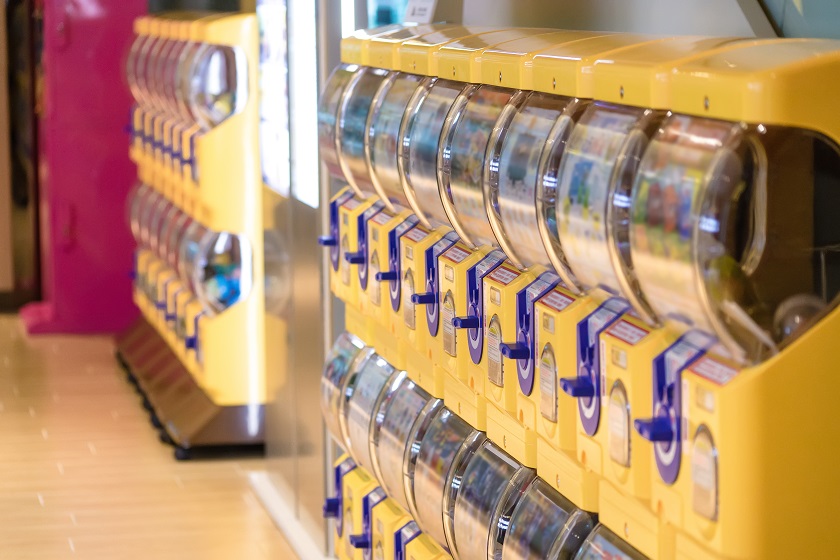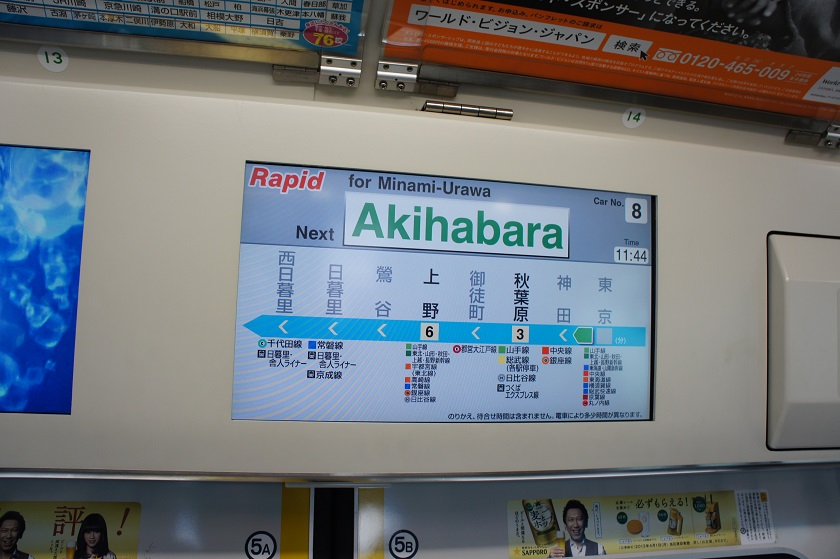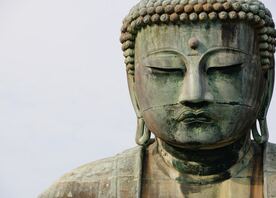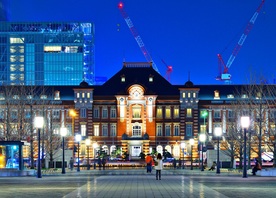Akihabara (秋葉原), sometimes shortened to Akiba, is famous for the many electronic and Otaku culture shops. From tiny hobby shops to massive department stores specializing in wide variety of anime, manga, digital entertainment, gadgets, home electronics, general hardware and anything closely related.
Additionally, entertainment cafés styled after popular manga and video games serve themed food and drinks. Then there are the iconic maid cafés. Akihabara is a unique part of modern Japanese culture and should be included in any visit to Chiyoda, Tokyo.
Table of contents:
A little history of Akihabara
Top 10 things to do in Akihabara
How to access Akihabara using the JR Pass
Tips for visiting Akihabara
A little history of Akihabara
During medieval times, the area now known as Akihabara was a dwelling place for lower-class samurai and merchant families. This changed abruptly when the entire neighbourhood burned down. At the time buildings were mostly made out of wood and packed closely together. The area was then redeveloped and a temple was built too: Akibagahara, named after the deity that could control fire.
The plan worked and no great fires have since taken place. Over the years, the name was shortened to Akiba or Akihabara. In 1890 the local train station was built, which also took the name Akihabara.
It was in the 1930s that Akihabara got the nickname “Denki town” or electric town. This as future-oriented shopped opened in the area selling electronics, like washing machines, refrigerators, televisions, and stereos.
With the introduction of computers and video games, it was a natural shift for Akihabara to become the hotspot for anything related to those markets. With the popularisation of anime, manga and video games and the high amount of similar shops closely packed together, a unique subculture rose. Namely that of the Otaku, translated as geek or nerd culture.
Top 10 things to do in Akihabara
Akihabara has lots of things to do, see and experience, here are our recommendations.
Yodobashi Camera flag store
Yodobashi Camera is a truly massive department store, completely filled with stuff you’d expect in Akihabara and then some. The department store is like stepping in a different world, there are sounds and little songs everywhere beckoning visitors to all kinds of products and not a single part of shelf goes unused.
Shop Anime, Manga and score some cool merch
Got a favourite Anime or Manga? Then be you can be sure that Akiba has stuff for you. There are plenty of shops that sell the Anime and Manga, and plenty more that sell all kinds of merchandise related to them, think of action figures, accessories, fan magazines, art books, plushies, t-shirts, the list goes on.
Go to a game centre & arcade
This is a must-do! From small arcades that cater to a niche to massive multi story gaming centres, Akihabara is the place to bring out your inner nerd. Whether you are looking for something nostalgic or hyper modern, every kind of game is playable. Our recommendation, have a go at street fighter II with a local, then have a wild Mario cart race and then try some of the latest rhythm games or go drumming with Taiko no Tatsujin!
Go Gacha-gacha – Gachapon
Gachapon refers to vending machines that dispense capsule toys or other collectables, and are especially popular in Japan. Most stores in Akihabara will at least have a couple of these machines while others are wholly dedicated to all kinds of Gacha machines, like Gachapon Kaikan. Have a look around, many will have cute souvenirs like keychains or kitchen magnets. It is a great way to score some cheap but cool souvenirs.

Gacha-gacha is an onomatopoeia for the hand-cranking action of a toy-vending machine. What is that you ask? An onomatopoeia is the process of creating a word that phonetically resembles, or suggests the sound of something. Like a cat’s “meow”, in this case gacha-gacha refers to the sounds of operating the vending machine to get your prize.
Relax at an internet/manga café
Visiting a Manga café is a great way to get some rest and relaxation. Usually open 24-hours, Manga cafés are a place to read manga, surf the web or take a quick nap. Often additional service to enjoy include: video games, showers, darts or even a Karaoke room.
Service is charged on a time-based system, that also includes drinks (coffee, tea, and soft drinks). Typical prices are about 1000yen per hour.
Try cosplaying
Akihabara has anything you may want for cosplaying. Specialised shops sell anything from full outfits to small miscellaneous goods! If you don’t want buy but want to partake in the experience, look for a cosplay café where you can dress up or rent an outfit to go. For more on cosplay read Cosplay in Japan.
Visit Radio Kaikan
Akihabara Radio Kaikan is an iconic 10-story commercial building, with lots of Otaku culture shops. It was the first of its kind in Akihabara and still well-loved today. Inside is a range of smaller shops selling action figures, media idol goods, and electrical parts. Be sure to take some time to explore and submerge yourself in the Akiba culture at Radio Kaikan.
Check out Mandarake
Mandarake started as a pre-owned manga dealer in 1987 and has since become one of the largest manga and anime stores in the world. Today the store still has a very strong collection of pre-owned items, in addition to new releases.
Gundam Café
Designed as “the Gundam base of operations” in Akihabara, the café offers an entertaining and immersive experience into the world of Gundam. Special themed food is available, ranging from power curry to beautiful designed ice cream.
Manseibashi Bridge
Manseibashi used to be an old station but closed down in 1943. The area has been renovated since and the railway arches now house shops and restaurants. With a historical look and feel inside due to the red brick interior. There are unique and cultural shops and different pop-up stores. It is a peaceful and relaxing visit, compared to the often hectic Akihabara.
How to access Akihabara using the JR Pass
Akihabara has easy access using the Japan Rail Pass as Akihabara station is located on the JR Yamanote line, JR Keihin-Tohoku Line line, JR Chuo line, JR Sobu line and private lines like the Tsukuba express and Tokyo Metro.
Tips for visiting Akihabara
- Many shops offer tax-free purchases for foreign visitors, be sure to ask as savings will add up quickly.
- Be sure to check prices and compare between shops and online. Akihabara has an image of providing the best price but this is not always true.
- Another tip for price conscious visitors, when visiting Maid cafe’s, prices are high, part of the price is being able to engage with the staff but be careful with what you order.
- Visit Akihabara on a Sunday, as no cars are allowed and the entire street turns into a pedestrian zone.
- Be sure to check out the side streets as well and go into the smaller shops. There are many hidden gems ready to be found.
- Don’t be afraid to bargain, just because a price is listed does not mean it is set. It is common for locals to ask for a discount, even in larger shops like Yodobashi. Just be tactful about it.




